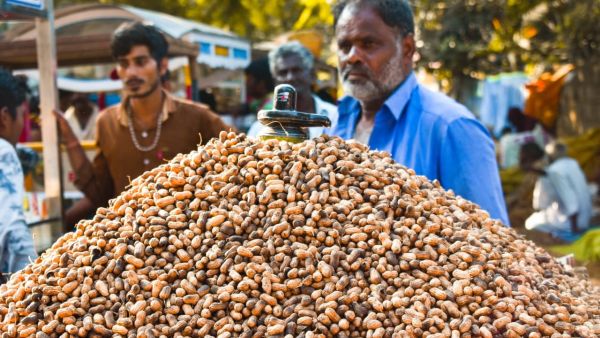NRIs are increasingly investing in senior living residential projects in India, with key hubs such as Kerala, Hyderabad, Bengaluru, and Delhi-NCR witnessing a sharp rise in demand.
With the affluent next-gen pros increasingly moving overseas and nuclear families replace traditional caregiving structures, senior living solutions in metros and their outlying suburbs are booming. Experts say rising incomes, demographic shifts and changing eldercare expectations are reshaping the sector, drawing investors from the US, UK, Canada, Australia, Singapore, and Gulf Cooperation Council (GCC) countries.
Both domestic and international operators are expanding portfolios in response. India's senior living market, valued at over $11 billion in 2025, is projected to grow at a CAGR of about 10% through 2033.
NRI Buyers
Developers and operators say NRI demand is becoming more visible across major southern and northern hubs. Kerala continues to attract buyers due to its large expatriate population in the Gulf and western markets.
Bengaluru and Hyderabad are gaining traction among NRIs with roots in southern India, supported by strong healthcare systems and established retirement communities. Delhi-NCR is emerging as a northern anchor market, drawing expatriates who prefer proximity to extended family and tertiary care hospitals.
"NRIs have seen professional, community-led eldercare abroad. They immediately understand the value of structured services, safety, and the positive impact of community living on healthspan. For them, senior living is not a replacement for family-it is an extension of their love, ensuring parents live with dignity, purpose, and independence back home in India," said Adarsh Narahari, founder and managing director of Primus Senior Living.
NRIs increasingly opt for senior homes that ensure long-term medical support, assisted care, and community-led engagement in familiar cultural settings.
Nuclear Families
The preference for organised senior living is tied to the rise of nuclear families and greater financial independence among seniors.
According to the Association of Senior Living India, a limited number of operators serve this segment. The top 10 players together hold more than 50% market share. Columbia Pacific Communities, Vedaanta, Ashiana, Paranjape (Athashri), Primus and Antara are the prominent operators with multiple projects across geographies. Key operators are strengthening partnerships with developers to scale faster.
Domestic operators are also expanding rapidly. Bengaluru-based Primus is entering new markets including Delhi-NCR, Pune, and Hyderabad to meet rising demand from both domestic and NRI families. The company is focusing on assisted living and continuum-of-care models.
International players are also expanding capacity. Columbia Pacific Communities, which operates senior living facilities across South India, is planning multi-city additions in partnership with domestic developers.
Rajagopal G, co-founder, director & group CEO, Serene Communities by Columbia Pacific, said, "Kerala's ageing population and higher life expectancy make it one of India's most important regions for senior care innovation. We are seeing more overseas families prioritise structured care for parents in India. Our focus is on building communities that offer medical readiness and independence, supported by global standards and local familiarity."
Operators say India's ageing demographic is driving the shift.
The country's senior population is expected to exceed 347 million by 2050, nearly doubling its share of the population. This transition is pushing families to look for structured environments offering medical supervision, security, and social interaction-when children are settled abroad.
With the affluent next-gen pros increasingly moving overseas and nuclear families replace traditional caregiving structures, senior living solutions in metros and their outlying suburbs are booming. Experts say rising incomes, demographic shifts and changing eldercare expectations are reshaping the sector, drawing investors from the US, UK, Canada, Australia, Singapore, and Gulf Cooperation Council (GCC) countries.
Both domestic and international operators are expanding portfolios in response. India's senior living market, valued at over $11 billion in 2025, is projected to grow at a CAGR of about 10% through 2033.
NRI Buyers
Developers and operators say NRI demand is becoming more visible across major southern and northern hubs. Kerala continues to attract buyers due to its large expatriate population in the Gulf and western markets.
Bengaluru and Hyderabad are gaining traction among NRIs with roots in southern India, supported by strong healthcare systems and established retirement communities. Delhi-NCR is emerging as a northern anchor market, drawing expatriates who prefer proximity to extended family and tertiary care hospitals.
"NRIs have seen professional, community-led eldercare abroad. They immediately understand the value of structured services, safety, and the positive impact of community living on healthspan. For them, senior living is not a replacement for family-it is an extension of their love, ensuring parents live with dignity, purpose, and independence back home in India," said Adarsh Narahari, founder and managing director of Primus Senior Living.
NRIs increasingly opt for senior homes that ensure long-term medical support, assisted care, and community-led engagement in familiar cultural settings.
Nuclear Families
The preference for organised senior living is tied to the rise of nuclear families and greater financial independence among seniors.
According to the Association of Senior Living India, a limited number of operators serve this segment. The top 10 players together hold more than 50% market share. Columbia Pacific Communities, Vedaanta, Ashiana, Paranjape (Athashri), Primus and Antara are the prominent operators with multiple projects across geographies. Key operators are strengthening partnerships with developers to scale faster.
Domestic operators are also expanding rapidly. Bengaluru-based Primus is entering new markets including Delhi-NCR, Pune, and Hyderabad to meet rising demand from both domestic and NRI families. The company is focusing on assisted living and continuum-of-care models.
International players are also expanding capacity. Columbia Pacific Communities, which operates senior living facilities across South India, is planning multi-city additions in partnership with domestic developers.
Rajagopal G, co-founder, director & group CEO, Serene Communities by Columbia Pacific, said, "Kerala's ageing population and higher life expectancy make it one of India's most important regions for senior care innovation. We are seeing more overseas families prioritise structured care for parents in India. Our focus is on building communities that offer medical readiness and independence, supported by global standards and local familiarity."
Operators say India's ageing demographic is driving the shift.
The country's senior population is expected to exceed 347 million by 2050, nearly doubling its share of the population. This transition is pushing families to look for structured environments offering medical supervision, security, and social interaction-when children are settled abroad.





